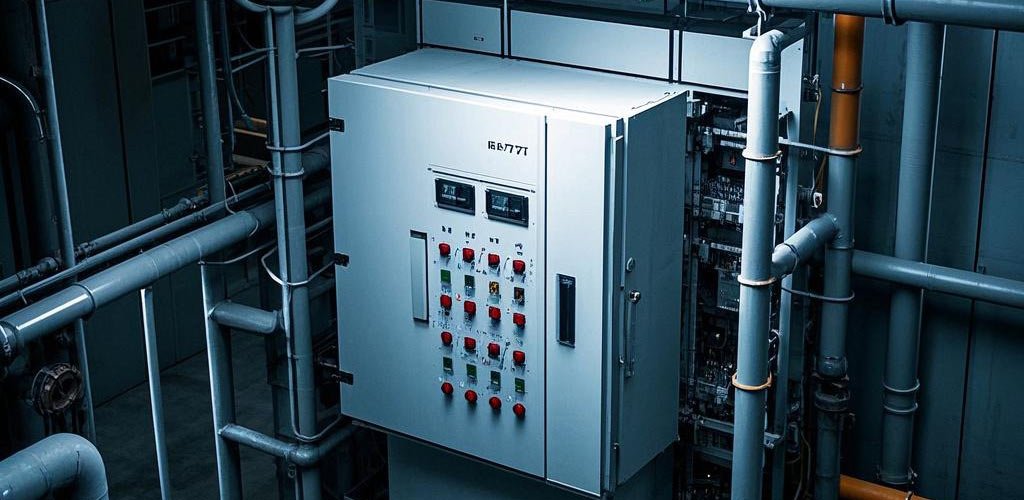Enclosures Customized for Electrical Needs–Trusted Manufacturer

Introduction
Enclosures are vital components in the management and protection of electrical systems across various industries. These enclosures—whether electrical boxes, junction boxes, or electrical cabinets—serve as the barrier between sensitive electrical components and the external environment. They are designed to safeguard against dust, moisture, and physical damage, ensuring the longevity and reliability of the equipment housed within. For businesses and individuals seeking durable, customized solutions, choosing the right enclosure manufacturer is crucial. This article explores the different types of enclosures, their uses, and the importance of customization to meet specific requirements.
Types of Enclosures
1. Electrical Boxes
Electrical boxes, also known as junction boxes, are essential for creating safe connections in electrical circuits. These boxes house splices and connections, providing protection from the external environment and preventing short circuits. They come in various sizes and configurations, from single gang to multi-gang boxes, and are available in materials such as plastic, metal, or fiberglass. Each material offers different benefits—plastic boxes are UV-stable and resistant to corrosion, while metal boxes (aluminum, stainless steel, carbon steel) provide added durability and impact resistance. When selecting a junction box, consider the NEMA rating, which dictates the level of protection the box provides—whether it’s for indoor or outdoor use.
2. Junction Boxes
Junction boxes are designed to connect multiple circuits and wires in a single, secure location. These boxes are crucial for residential, commercial, and industrial installations, allowing for easy access to connections and splices. The choice of material impacts the enclosure’s suitability for various environments. Polycarbonate junction boxes are popular for indoor use due to their resistance to UV rays and impact. Metal junction boxes, such as aluminum or steel, are often used in harsher conditions, offering protection against moisture, dust, and mechanical damage. Customization options such as CNC machining and digital printing allow manufacturers to tailor these enclosures to meet specific installation needs.
3. Electrical Cabinets
Electrical cabinets are larger enclosures used to house complex electrical systems, including circuit breakers, power supplies, and other critical equipment. These cabinets are designed for durability, often made from materials like steel, aluminum, or polycarbonate, each offering unique advantages. Steel cabinets are best for high-impact and corrosion-prone environments, whereas aluminum cabinets are lighter and suitable for both indoor and outdoor settings. Customization is essential for electrical cabinet manufacturers, allowing them to offer specialized solutions such as ventilation slots, customized cable entry points, or unique mounting options. These custom features enhance safety and ease of installation, making the cabinets more functional for complex systems.
4. Manufacturers of Enclosures
Selecting the right enclosure manufacturer is crucial for ensuring quality and durability. Leading manufacturers provide a range of solutions—from standard off-the-shelf enclosures to highly customized designs tailored to specific needs. For example, enclosures manufacturers often offer digital printing for custom labeling, CNC machining for precise cuts and holes, and laser etching to add logos or other branding elements directly onto the surface of the enclosure. These customization options not only improve the visual appeal of the enclosure but also enhance its functionality by allowing for specific mounting requirements. It’s important to work with a manufacturer that can meet the exact specifications needed for your electrical application.
Custom Solutions for Enclosures
1. Color Customization
Color plays a significant role in branding and functionality. Custom color options allow businesses to match enclosures to their corporate identity, making them not just functional but also part of the brand’s visual story. Many manufacturers offer a wide range of colors, including UV-stable options for outdoor use. This customization ensures that the enclosures not only blend into their environment but also protect against UV damage that could affect the structural integrity of plastic enclosures over time.
2. Custom Labels
Custom labeling is crucial for quick identification and safety. Manufacturers can provide metal plates with engraved text or custom stickers with barcode information, logos, and other details. These labels help in tracking equipment and provide critical warnings in industrial settings. Laser-printed labels can be directly applied to metal enclosures, while vinyl stickers are used for plastic boxes, both offering durability and resistance to fading.
3. Laser Printing
Laser printing is used to add detailed graphics, logos, or instructions directly onto the surface of enclosures. This method is perfect for environments where durability and visibility are essential. The laser-etched information remains visible and legible for the lifespan of the enclosure, even in harsh conditions. This customization helps companies meet compliance standards and ensure safety protocols are clearly communicated to users.
Choosing the Right Enclosure
When selecting an enclosure, consider the following factors:
- Environmental Conditions: Assess the exposure to elements such as dust, moisture, and temperature extremes to select the appropriate NEMA or IP rating.
- Material: Choose the material—plastic, metal, or fiberglass—based on the durability needed. Each material offers specific advantages, such as UV resistance in polycarbonate or impact resistance in steel.
- Size and Configuration: Ensure the enclosure provides enough space for components and allows for easy installation. Some enclosures come pre-drilled for mounting, which simplifies the installation process.
Conclusion
Enclosures are critical to protecting electrical systems and ensuring their safe operation in a variety of settings. By choosing the right enclosure type and working with a reputable manufacturer, businesses can enhance system efficiency and reliability. Customization options such as color selection, laser printing, and CNC machining allow for tailored solutions that meet specific needs. Whether you’re an electrical cabinet manufacturer, an OEM, or an individual looking to safeguard your installations, selecting the right enclosure is essential for long-term success.
